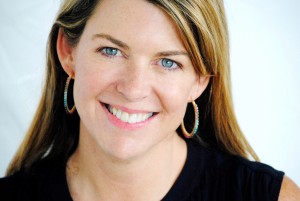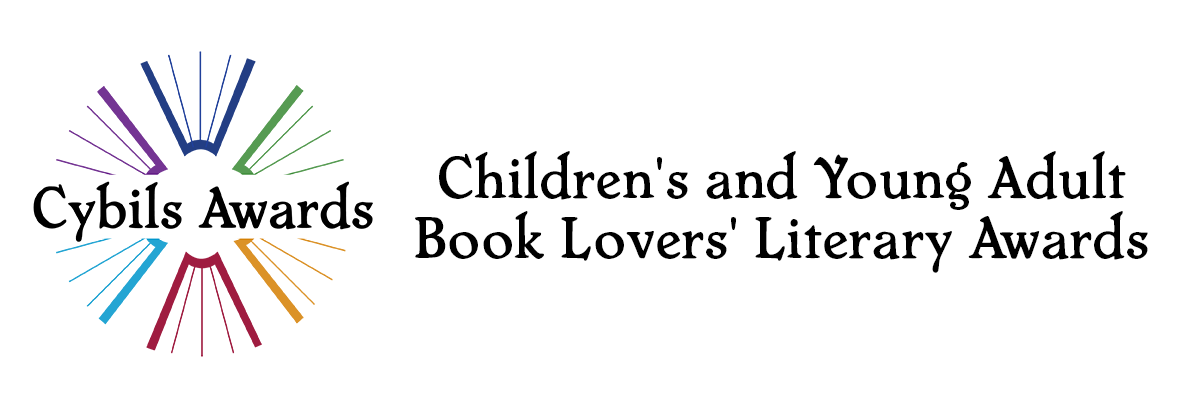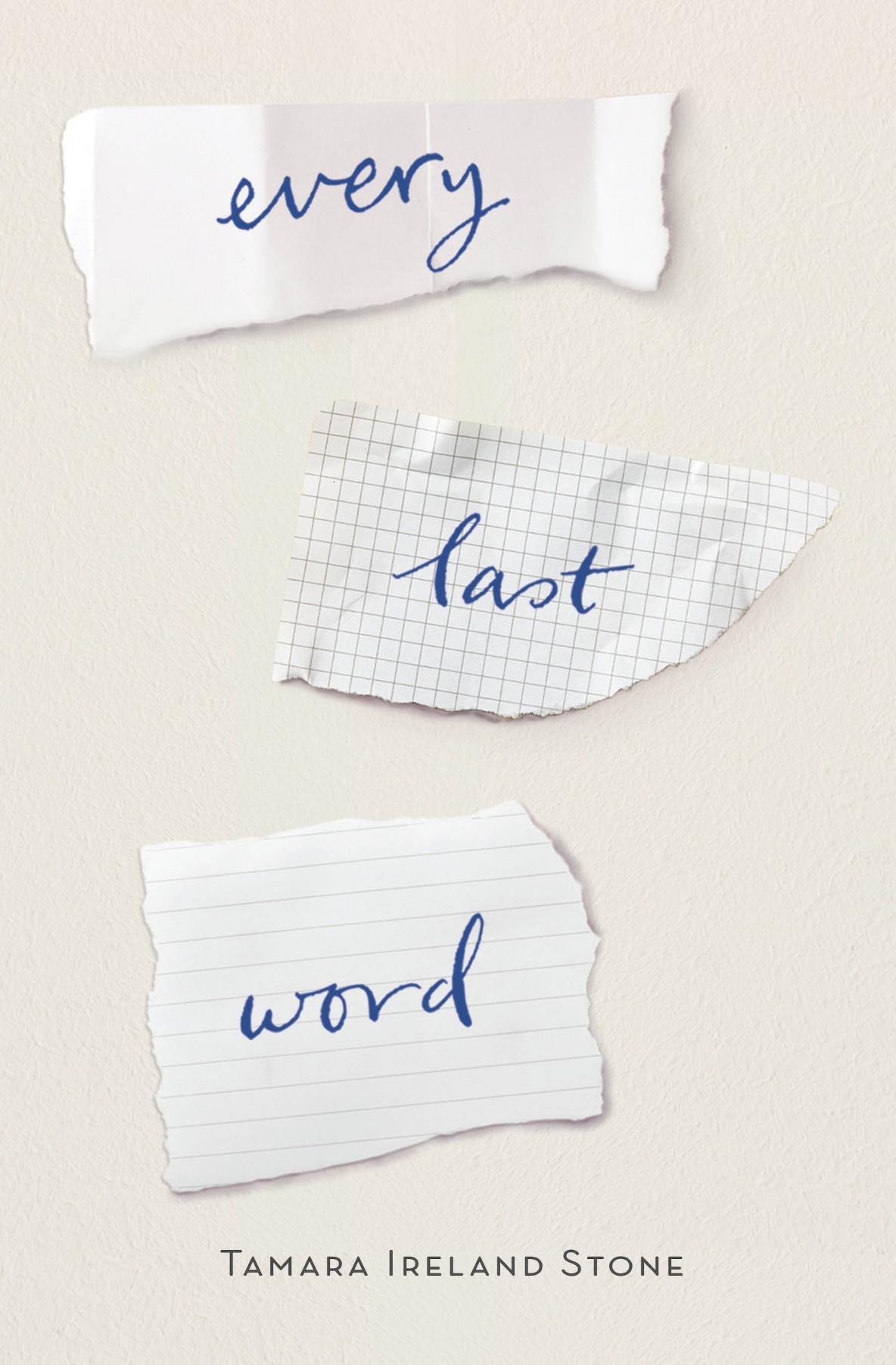First off, congrats! We adored Every Last Word. Can you tell us a bit about how you came up with the idea for the book?
Thank you so much! What an honor to have been nominated in the YA fiction category this year—and in such impressive company. I’m incredibly grateful to the Cybils judges for reading and supporting Every Last Word. I’m still walking on air.
When I first came up with the idea for this story, I’d been thinking a lot about words like “normal” and “perfect” and the power they can have on people, especially teens.
I wanted to write a story about a teen who looked perfect on the outside but felt exactly the opposite on the inside. I think that’s something so many of us can relate to—the idea of putting on a mask to become someone we think others want us to be.
Around the same time, a friend’s teen daughter was diagnosed with obsessive-compulsive disorder (OCD). She couldn’t sleep for more than four hours at a time. She felt powerless to a stream of negative, often terrifying thoughts. And she didn’t feel she could confide in her friends, so they unknowingly made things harder for her.
I couldn’t imagine dealing with something so intense, especially at such a young age. And hiding a mental illness from your closest friends fit well with the story I wanted to tell. On the outside, her life looked idyllic but on the inside, she was often struggling in silence. I was honored when she and her family agreed to work with me on this book.
Every Last Word is a story about finding true friends, the power of the written word, taking control of your mental health, and being kind yourself and others. But ultimately, it’s a story about a girl who finds the courage to remove her mask, learns that life is scarier without it, and keeps it off anyway. It’s a story about self-acceptance and discovering your own “normal.”
There seem to be a lot of YA books dealing with mental illness and teenagers. Why do you think that this has become an important theme?
It’s wonderful to see so many new novels addressing mental health. As authors, I doubt any of us intended to start or become part of a trend, we all just happened to write books we thought needed to be written.
Many people in my life are dealing with various mental health conditions, either personally or with their children. We talk about it. And as parents, we’ve opened the conversation with our kids in an effort to make it a safe, judgment-free topic.
My son was having some problems with anxiety when I first started writing Every Last Word. He was only ten years old. I bought an illustrated book about anxiety and we read it together. When we got to the symptoms—racing heart, shortness of breath, stomachaches—he suddenly broke into tears. He finally squeaked out, “It’s anxiety? I thought I had cancer!” That broke my heart.
Not cancer. “Anxiety.” There. It had a name. Rather than feeling the emotion accelerate and letting fear turn it into something completely different, we now had a word. He could say, “I’m feeling anxious,” and we’d know what to do.
Words have such power.
As parents, we actively talk with our kids about exercise and eating well. We take them in for checkups and closely monitor their physical health and development. Why do we tend to treat mental health so differently?
I’m thrilled to see so many novels tackling mental illness in teens. Together, I hope we’re helping to change the narrative, using fiction to spread the message that it’s okay to talk openly about what’s going on in your brain, it’s okay if your mind works differently, and it’s absolutely okay to ask for help if you need it—that’s a sign of strength, not weakness.
Why did you choose to focus on a character with Obsessive Compulsive Disorder?
When my friend’s daughter was diagnosed, I realized how little I knew about OCD. Once I started researching, it became clear I wasn’t alone. This is an extremely complex and widely misunderstood illness.
People throw the term around all the time, saying things like “I’m so OCD!” to describe how they like to color code their sock drawer (which makes me cringe!). Most people have no idea how painful and debilitating it can be.
I took on this project because I wanted to better understand OCD. And while my friend’s daughter has a wonderful support system in place, not all teens have that. Sometimes, emotional support comes from the world of fiction.
I knew this was going to be a challenging project from the beginning. It was so important to me to get the mental health piece right, but I realized I’d never get it one hundred percent right for everyone—each person’s experience with any kind of mental illness is unique. Still, I went in with a goal to portray life inside Sam’s active, questioning, occasionally frightening mind as accurately as I could.
I’m absolutely overwhelmed by the emails I receive from readers—many with OCD, anxiety or depression—telling me this story made them feel less alone, that Sam’s words spoke to them on a deep level, or that they felt newly empowered to seek out help or to confide in a trusted friend or family member after reading it. If Sam’s story is making that kind of difference in people’s lives, it’s accomplishing everything I hoped it would.
 One of the themes of this book is that writing things down makes life better. How has that idea helped you with your writing?
One of the themes of this book is that writing things down makes life better. How has that idea helped you with your writing?
Something interesting happened to me when I was first drafting this novel.
Here I thought I was writing a story about a teen with OCD, but at one point, I found myself in tears when I realized how personal this story had become.
All along, I had been giving Sam tools to cope with her overactive brain. I gave her a therapist she could trust and medication that worked. I made her a competitive swimmer to give her a physical outlet. I gave her the sound of running water to soothe her. But somewhere along the way, I also gave her my coping mechanism. I gave her a pen. And a notebook.
Writing—the simple act of putting words on paper and getting them out of my head—saved me when I was a teen. Even though I never let anyone else read my stories, poems, or journal entries, my notebooks were my safe place. My heaviest thoughts weighed a lot less on paper. Words were always my friends, even when I didn’t have many real ones.
I simply love writing. I love finding that one word that perfectly fits what I’m trying to say. I love putting words together, flipping them around, playing with them. I love the cadence of a paragraph, when sentences work together so fluidly, they sound musical. I love it when words move me to tears and laughter and swoons and chills and… whatever they feel like doing.
I loved every moment of writing this novel.
Every Last Word became a personal story about a girl falling in love with writing and learning to be brave with her words.
I never take for granted how fortunate I am to be able to share my stories with other people, even though the whole idea still scares me. But my readers are a lot like the people in Poet’s Corner. They’re positive, inspiring, loving and unbelievably supportive. They make me want to be braver, book by book.
If you don’t mind telling us, what are you working on next?
I can’t officially talk about what’s coming next, but I can say I’m currently working on two books. The first is a YA novel due out in 2017. I’m thrilled about these two projects—both are special to me and personal in totally different ways. I can’t wait to share them with readers!

